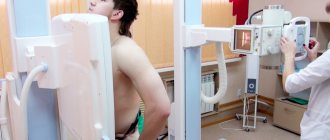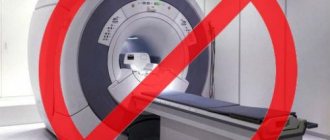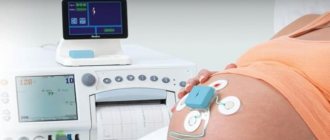The majority of laparoscopic interventions require hospitalization, the duration of which depends on the complexity of the upcoming operation. As a rule, a sick leave certificate is issued, and the question of what to take with you to the hospital for laparoscopy should be immediately clarified with the doctor who prescribed this procedure. The list of things is small and depends on the level of the clinic where the intervention is performed, as well as on the specific purpose of laparoscopy.
Things to take with you to the hospital
To facilitate the recovery period and shorten its duration, you need to follow all the doctor’s recommendations - proper preparation for the operation is one of the keys to its success.
What to take with you to the hospital: list of personal items
- Slippers (preferably rubberized so that you can go to the bathroom in them), or additional flip-flops for the bath (so as not to become infected with fungus)
- Suit for men
- Bathrobe for women (it is more convenient to wear a robe when the postoperative suture hurts)
- Nightgown (for women)
- Replacement panties (several sets)
- Socks
- Towels (1 medium and 2 small)
- Liquid soap (it’s more convenient because it won’t slip out of your hands, won’t fall, won’t get dirty, and you don’t need to take a soap dish; in addition, it will replace shower gel, and if you forget shampoo, it will also replace shampoo)
- Toothpaste and toothbrush
- Toilet paper
- Paper toilet seat covers (highly recommended!)
- Wet wipes
- A garbage bag, a bathroom bag (you will put a towel and other supplies in it, since the bathroom can be damp) and a shoe bag (which you will put in the cloakroom when hospitalized)
- Bag for clothes (when you go to the operating room you will need to change into a sterile shirt or your nightgown, and put your robe, socks and jewelry in a bag and give it to the nurse)
- For hair: comb, shampoo (small bottle)
- Deodorant
- You can buy a sippy cup (convenient after surgery if there is a long postoperative period and it is impossible to eat while sitting).
- Additionally, take to the hospital for women: cosmetic discs, toner and face cream, hygienic lipstick, hair tie (if you have long hair), pads and a disposable diaper (especially for gynecological operations)
- What to take a man to the hospital (optional): razor and shaving foam
- In the off-season, when the heating has not yet been turned on, but it is cold outside at night, take a warm jacket and socks with you. By the way, it is not advisable to take woolen items to the surgical department; it is better to prefer fleece items.
- Phone charger and top up phone account
- Mug, spoon, napkins
- Book, crossword, notepad and pen
- If you are used to sleeping in absolute silence, then as an adaptation for the first day you can take earplugs (what if your neighbor snores?)
If an operation is to be performed, then the underwear that comes into contact with the skin next to the surgical suture should be ironed.
What to take with you to the hospital A reminder that will be useful during hospitalization
This message (material) was created and (or) distributed by a foreign media outlet performing the functions of a foreign agent, and (or) a Russian legal entity performing the functions of a foreign agent.
Sign the petition demanding the repeal of the law on foreign agents!
Payker/Shutterstock
The situation with coronavirus is still alarming: in Moscow alone, 800-900 seriously ill patients are hospitalized per day. No one is immune from ending up in the hospital, so it is important to know what essential items you need to keep on hand in case you are hospitalized, and which ones your loved ones can later pass on. What you can and cannot bring into the hospital depends on the internal regulations - these may differ depending on the type of institution and the disease.
Prepare documents and money
According to the law, during hospitalization, people who require emergency medical care should not be asked for documents. In other cases, when going to public hospitals, you need to take your passport and compulsory medical insurance policy with you. For planned placement in a hospital, you may also need a referral from the attending physician (for childbirth, you also need an exchange card and a birth certificate, which are issued at the antenatal clinic). In addition to documents, you should take money with you to the hospital. It is better to put cash in your bag along with a bank card, for example, to pay at a hospital cafeteria if there are problems with cashless payments.
Don't forget the medications you take regularly
Bring to the hospital all medications you are taking at the time of hospitalization (for example, for chronic diseases). It is possible that, after consultation with your doctor, you will have to abandon some of them or find a replacement if they do not fit with the new prescriptions. Tell your doctor about everything you take, from prescription drugs to dietary supplements and traditional medicine (such as tea or herbal ointments). Herbal medicines are often forgotten, although some of them can affect the course of treatment: increase the side effects of drugs, interfere with anesthesia, affect blood clotting and blood pressure levels.
Take hygiene products
They will definitely come in handy in the hospital: soap, shampoo, toilet paper, razor, toothpaste and brush, deodorant. The list can be further expanded depending on personal preferences. For example, someone may need cleanser, cream, shaving foam, sanitary pads, hair conditioner, tissues or shower gel. You can also take wet wipes with you for intimate hygiene. In the hospital, it is important to remember to wash your hands as often as necessary. If you don’t have constant access to a sink and soap, you can use an antiseptic - it’s also worth taking with you (the main thing is that it contains at least 60% alcohol).
What to do if you forgot something or didn’t have time to collect it? Procter & Gamble, with whom we made this article, donated personal hygiene kits and essential items to 19 hospitals in Moscow and St. Petersburg working with COVID-19. Each hygiene kit consists of shampoo, hair conditioner, toothpaste and brush, hand wash products, antiperspirants and sanitary pads. All these are Procter & Gamble products, which are produced under the brands Tide, Myth, Oral-B, Blend-a-med, Gillette, Venus, Head & Shoulders, Pantene, Herbal Essences, Always, Secret, Aussie, Tampax.
Pack personal items and clothing
When hospitalized, you should take with you a comfortable change of clothes, a robe, several sets of underwear, towels, rubber flip-flops, socks and other items of clothing that you find necessary. If the hospital's internal rules do not prohibit this, you can take with you a phone and laptop, a charger for them, books, a thermal mug, your own pillow or something else for leisure and comfort.
Do I need to wear a mask in the hospital? There is no clear answer. The World Health Organization (WHO), like many other organizations, believes that masks are needed for healthcare workers, patients and people who care for them at home. Some experts and some medical organizations recommend everyone wear masks. In any case, masks cannot be called reliable protection. They do not fit tightly over the nose and mouth and do not cover the eyes. To make the mask fit more tightly, men should shave their mustache and beard, but in a hospital setting this can be problematic. Procter & Gamble took care of this and provided hospitals with 1 million free disposable Gillette razors.
Food and drinks will not be superfluous (unless prohibited)
When hospitalized, it is worth taking a bottle of water with you so that you have something to quench your thirst while waiting in the emergency department. In the hospital, the patient must be fully provided with food. Whether he will be able to accept parcels of extra food from loved ones depends on his state of health, the requirements of the hospital administration, his diet and the recommendations of the treating staff. For example, you can ask the medical staff for a list of permitted products, and also clarify whether the department has a refrigerator where perishable foods can be stored. If a child under four years of age is admitted to the hospital (or a child under 18 has special indications), then one of the relatives can stay in the hospital permanently and receive food for free.
What to do if there are children and elderly relatives at home who need supervision? Try asking your loved ones for help. If this is not possible, report the children to the hospital doctors. They will contact the guardianship authorities and send employees who will place the children in the hospital with a parent (if possible), in a family center or with relatives. You can read more about this here. For help for elderly relatives who require care, you can contact social services or volunteer organizations (for example, this or that). They will visit their relatives, check if everything is okay, and give them food. One of these organizations is the Rus Food Fund, which in April donated 76 tons of Procter & Gamble products to 21 thousand high-risk citizens.
What you need to take for surgery and for the postoperative period
Compression stockings are very important!!! Compression stockings should be worn not only by older women and men, but also by young people, because... During anesthesia, everyone's blood becomes thick and viscous, which means there is a risk of blood clots (at any age!). There are special stockings for surgery - called hospital stockings or anti-embolic stockings (they will protect the legs from the formation of blood clots during anesthesia). Read about the requirements for hospital stockings in the section “stockings for surgery.”
Postoperative bandage (will help reduce pain in the area of the postoperative suture and avoid adhesions). Be sure to buy a bandage before you go to the hospital, because as the saying goes, “a spoon is dear to dinner,” and the bandage should be purchased and selected in advance. In addition, you will save your relatives from the need to run around stores, take your measurements over the phone and take the first model that comes along. Call us, we will help you choose, and if necessary, we will even deliver you to the hospital. Look in our catalog “postoperative bandages” from the simplest models to the super-functional ones. Disposable diaper (it is convenient to place a bedpan or a “duck” on it so as not to stain the bed linen, and it is also necessary for women during gynecological surgery, and for all patients who have a catheter placed) In some cases, diapers (depending on the type of operation) If you do not want to use public hygiene products, then purchase your own plastic bedpan (for women) and a “duck” urinal for men. It's not expensive, but it's hygienic.
A convenient device is a rope ladder (attached to the bed to make it easier to get up)
In the postoperative period, if the rehabilitation is planned to be long, and there are no functional beds in the hospital, then an adjustable headrest for the bed will be useful (you can then take it home and use it at home and in the country).
For older people with an unsteady gait, take care of rehabilitation walkers (you can not only buy them from us, but also rent them).
Constipation after surgery: what to take with you to the hospital
In the postoperative period, there is often constipation and it is difficult to go to the toilet, so we recommend taking a laxative with you; “Amplifir” (produced by the Russian research and production enterprise “NPP Biotika-S”) has proven to work best. Amplifier forms stool, does not cause painful spasms and diarrhea, but acts carefully and gently, and what is important - does not interfere with the absorption of vitamins and microelements, and also has a beneficial effect on the intestinal flora, it can be taken for a long time, therefore, thanks to all the above characteristics, we recommend it this drug. Sold in the online store shop.biotika-s.ru
Medicines (for chronic patients)
When you are admitted to the hospital, take with you the medications that you take regularly (be sure to tell your doctor about them!).
Don't forget the bandage and compression stockings for surgery! The bandage will greatly facilitate the postoperative period! Look at our catalog “Postoperative Bandages”, and stockings will protect your veins from complications.
Is it possible to take a body cross to the hospital for surgery?
You can wear a pectoral cross to the hospital and even need to if you are Orthodox, but unfortunately, you will have to remove it directly for the operation. Why? Because during anesthesia nothing should restrict the chest and, especially, the neck. In an emergency, seconds matter, so the doctor may not have time to unfasten your chain, and if it is damaged, patients may file a claim. A pectoral cross on a string is also not a solution, because the cross cannot be removed over the head, you will only have to cut the string, but in the turmoil the cross can be lost, and this is a matter of financial responsibility.
Who is suitable for laparoscopic surgery?
Laparoscopy is most widespread in gynecological practice - for diagnosis and treatment. In general surgery, it is used for emergency diagnosis of acute abdominal pathologies - suspected mesenteric thrombosis or intestinal necrosis, intestinal obstruction or acute pancreatitis, as well as blunt and penetrating abdominal injuries. Among the gynecological indications for such a study it is worth noting:
- tumors and similar formations of the ovaries;
- uterine fibroids;
- endometriosis;
- malformations of the internal genital organs;
- ectopic or progressive tubal pregnancy.










